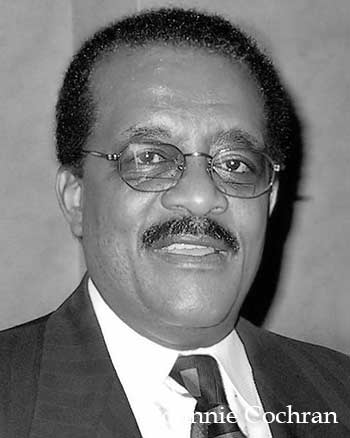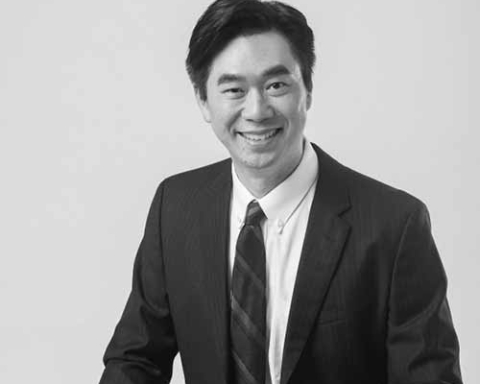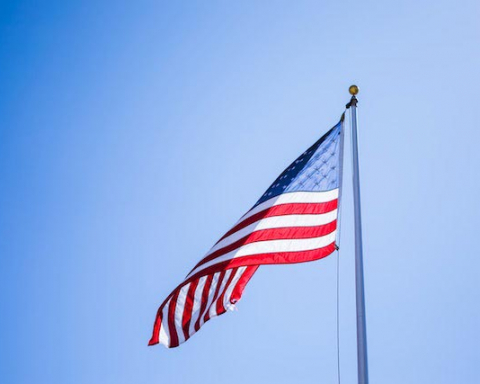Johnnie Cochran was a prominent figure in the legal world, known for his fervent advocacy for justice and civil rights. His career spanned decades and was marked by groundbreaking cases that reshaped the landscape of American law. From humble beginnings, Cochran rose to prominence as a skilled attorney, eventually becoming a household name after his involvement in the infamous O.J. Simpson trial. Beyond his legal prowess, Cochran’s legacy extends into the realm of civil rights activism, leaving a lasting impact on both the legal profession and society as a whole. This biography delves into the life, career, and enduring legacy of Johnnie Cochran.
Johnnie L. Cochran, Jr. was born on October 2, 1937, in Shreveport, Louisiana. His great-grandparents were slaves, and his grandfather was a sharecropper. His father, Johnnie Cochran, Sr., and mother, Hattie B. Cochran, instilled in Johnnie a strong work ethic that propelled him from the Jim Crow Era South to the upper echelons of the American Legal System. Growing up alongside his sisters, Pearl and Martha Jean, in a time when Louisiana was still grappling with the aftermath of The Great Depression and deeply entrenched Jim Crow laws, Johnnie’s childhood in Shreveport was marked by fond memories of Sundays spent with his family and church.
In the fall of 1943, Johnnie’s father relocated to California and secured employment as a pipe fitter with Bethlehem Steel in the Alameda Naval Shipyards. At age six, Johnnie and his family embarked on a journey to California as part of the second wave of the Great Migration, during which 6 million African Americans moved to the Northeast, Midwest, and West. Initially residing with Aunt Lucinda, the family soon found their home near the shipyard, marking their first experience with an integrated neighborhood where individuals of various races and religions coexist harmoniously.
Johnnie Cochran’s upbringing in Shreveport and subsequent move to California not only shaped his perspective on racial dynamics but also laid the foundation for his future success in the legal field.
In 1949, a year after accepting a promotion and relocating to San Diego, Johnnie Cochran, Sr. was offered another opportunity for advancement. He was asked to move to Los Angeles, where Golden State Mutual, the company he worked for, was headquartered. The family packed their belongings once again and made the move to the city that would become the permanent residence of Johnnie L. Cochran, Jr. for the remainder of his life.
Johnnie graduated from UCLA in 1959 and subsequently enrolled in Loyola Law School. Despite the demanding schedule at Loyola, Johnnie managed to balance his studies with work commitments, marriage in his first year, and the birth of his first child during his third year. Additionally, he secured a position in his desired field and made history as the first African American law clerk in the office of the Los Angeles city attorney.
Inspired by the legal triumph of Thurgood Marshall in the landmark case of Brown v. Board of Education, Johnnie Cochran made the decision to commit his life to the practice of law. Viewing his career as a calling, Cochran saw it as a unique chance to fight for justice and confront injustice head-on; he believed that he could truly make a difference through the practice of law. In his book “A Lawyer’s Life,” Cochran reflected, “I devoured every piece of literature I could find on Thurgood Marshall, solidifying my belief that a single dedicated individual could utilize the law as a tool for societal change.” Cochran’s dedication and perseverance in the face of numerous challenges exemplify his unwavering commitment to success and breaking barriers in the legal profession.
On June 1, 1962, Johnnie graduated from law school and commenced his preparations to take the California bar exam. After completing the exam, he returned to his position at the city attorney’s office, where he began the month-long wait to receive his results. In the early hours of Monday, December 17th, Johnnie was abruptly awakened at 2:30 a.m. by a friend who called to deliver the exciting news that he had successfully passed the bar exam.
In 1965, Johnnie Cochran departed from the city attorney’s office and established his inaugural private practice alongside fellow former deputy district attorney, Gerald D. Lenoir. Throughout his career, Cochran’s clientele boasted notable figures such as Michael Jackson, Tupac Shakur, and Jim Brown. Additionally, he fervently advocated for victims of police brutality.
The O.J. Simpson trial captivated audiences worldwide and propelled Johnnie Cochran to international fame as one of the most renowned attorneys of his time. From June to October of 1995, a mesmerized nation followed the televised trial closely, culminating in the highly anticipated verdict on October 3rd at 10:07 A.M., when Simpson was acquitted on both murder charges. An estimated 100 million viewers tuned in to witness the verdict, causing a significant loss of productivity amounting to approximately $480 million as people across the globe paused to witness this historic moment.
Johnnie’s proudest moment of his career, however, was his work for Geronimo Pratt. Johnnie Cochran dedicated himself to working alongside Black Panther leader Geronimo Pratt, who was unjustly serving a sentence for a crime he did not commit. It was revealed that crucial evidence, such as police wiretaps proving Pratt’s whereabouts at the time of the murder in Santa Monica, was withheld during his 1972 trial. Additionally, the key witness, Julius Butler, was discovered to be an informant for both the FBI and the Los Angeles Police Department.
On June 10, 1997, Johnnie Cochran successfully completed his efforts on behalf of Geronimo Pratt, resulting in the vacating of Pratt’s conviction after 27 years of wrongful imprisonment. This monumental achievement stood as one of Johnnie’s proudest moments as an attorney. The bond between Cochran and Pratt remained strong until Mr. Cochran’s passing in 2005, solidifying their friendship as a testament to the power of justice and perseverance.
In December 2003, Cochran received the devastating news of a brain tumor diagnosis. Following surgery in April 2004, he chose to step away from the public eye to focus on his health. Despite this challenging time, he reassured the New York Post that he was feeling well and maintaining good health.
Tragically, Cochran lost his battle with the brain tumor on March 29, 2005, at his residence in Los Angeles. A public viewing of his casket was held on April 4 at the Angelus Funeral Home and on April 5 at Second Baptist Church, both in Los Angeles. A memorial service took place at West Angeles Cathedral on April 6, 2005.
Cochran’s final resting place is in the Inglewood Park Cemetery in Inglewood, California. His father, Johnnie Sr., attended the funeral, as well as many former friends and clients, including O. J. Simpson and Michael Jackson. Johnnie Cochran’s legacy continues to live on through his impactful work in the legal field.






